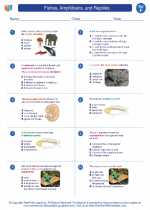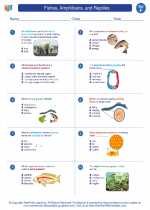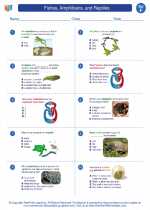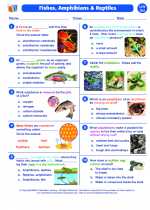Membrane Potential
The membrane potential refers to the difference in electric charge between the inside and outside of a cell membrane. It is a crucial concept in understanding the functioning of nerve and muscle cells.
Key Concepts:
- Resting Membrane Potential: The electrical charge difference across the cell membrane when the cell is at rest.
- Ions: Charged particles that play a key role in establishing membrane potential, including potassium (K+), sodium (Na+), and chloride (Cl-).
- Ion Channels: Proteins in the cell membrane that allow specific ions to move in and out of the cell.
- Electrochemical Gradient: The combination of the concentration gradient and the electrical gradient that affects the movement of ions across the membrane.
- Action Potential: A rapid change in membrane potential that allows for the transmission of signals in nerve and muscle cells.
Factors Influencing Membrane Potential:
Several factors contribute to the establishment and maintenance of membrane potential:
- Ion Concentrations: The concentration of ions inside and outside the cell affects the overall membrane potential.
- Ion Permeability: The ease with which ions can move across the membrane through ion channels influences the membrane potential.
- Na+/K+ Pump: This protein actively transports sodium out of the cell and potassium into the cell, contributing to the establishment of membrane potential.
Study Guide:
To understand membrane potential, it is important to focus on the following aspects:
- Define membrane potential and its significance in cell function.
- Explain the role of ions in establishing membrane potential.
- Describe the function of ion channels and their impact on membrane potential.
- Discuss the concept of resting membrane potential and factors that influence it.
- Examine the process of action potential and its significance in nerve and muscle cell communication.
◂Science Worksheets and Study Guides Sixth Grade. Fishes, Amphibians, and Reptiles
Study Guide Fishes, Amphibians, and Reptiles
Fishes, Amphibians, and Reptiles  Activity Lesson
Activity Lesson Fish, Amphibians & Reptiles
Fish, Amphibians & Reptiles  Worksheet/Answer key
Worksheet/Answer key Fishes, Amphibians, and Reptiles
Fishes, Amphibians, and Reptiles  Worksheet/Answer key
Worksheet/Answer key Fishes, Amphibians, and Reptiles
Fishes, Amphibians, and Reptiles  Worksheet/Answer key
Worksheet/Answer key Fishes, Amphibians, and Reptiles
Fishes, Amphibians, and Reptiles  Worksheet/Answer key
Worksheet/Answer key Fishes, Amphibians, and Reptiles
Fishes, Amphibians, and Reptiles  Vocabulary/Answer key
Vocabulary/Answer key Fishes, Amphibians, and Reptiles
Fishes, Amphibians, and Reptiles  Vocabulary/Answer key
Vocabulary/Answer key Fishes, Amphibians, and Reptiles
Fishes, Amphibians, and Reptiles  Vocabulary/Answer key
Vocabulary/Answer key Fishes, Amphibians, and Reptiles
Fishes, Amphibians, and Reptiles  Vocabulary/Answer key
Vocabulary/Answer key Fishes, Amphibians, and Reptiles
Fishes, Amphibians, and Reptiles  Vocabulary/Answer key
Vocabulary/Answer key Fishes, Amphibians, and Reptiles
Fishes, Amphibians, and Reptiles 

 Activity Lesson
Activity Lesson
 Worksheet/Answer key
Worksheet/Answer key
 Worksheet/Answer key
Worksheet/Answer key
 Worksheet/Answer key
Worksheet/Answer key
 Worksheet/Answer key
Worksheet/Answer key
 Vocabulary/Answer key
Vocabulary/Answer key
 Vocabulary/Answer key
Vocabulary/Answer key
 Vocabulary/Answer key
Vocabulary/Answer key
 Vocabulary/Answer key
Vocabulary/Answer key
 Vocabulary/Answer key
Vocabulary/Answer key

The resources above cover the following skills:
LIFE SCIENCE
From Molecules to Organisms: Structures and Processes